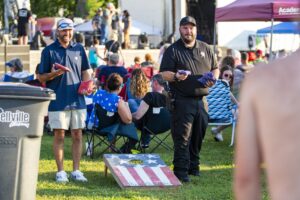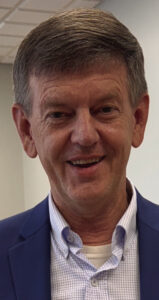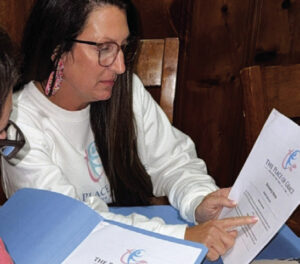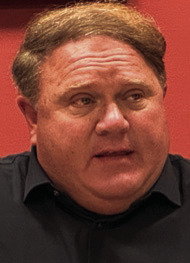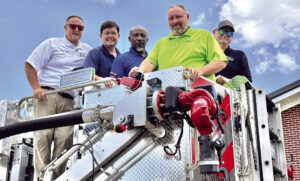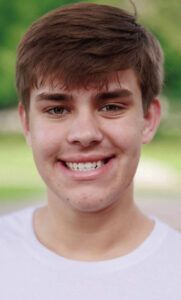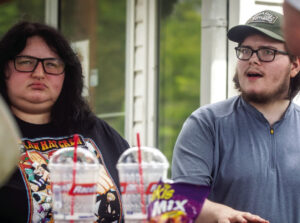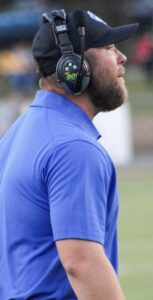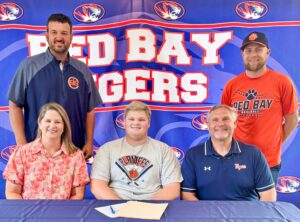MCC to give area residents glimpse of space
By Staff
SCANNING THE SKIES James Hill, director of the Rainwater Observatory and Planetarium in French Camp, is one of the speakers scheduled Thursday on spring constellations and recent findings on Jupiter and Saturn. The lectures begin at 6 p.m. in McCain Theater in Ivy Hall on the Meridian Community College campus. After the lectures, participants will be able to see constellations, the moons of Jupiter and the rings of Saturn through telescopes, weather permitting. The event is free and open to the public. Submitted photo
By Steve Gillespie / staff writer
March 27, 2002
If the sky is clear Thursday, area residents may have the chance to see the rings of Saturn, the moons of Jupiter and the Ikeya-Zhang comet, discovered in February.
Meridian Community College is hosting lectures by James Hill, director of the Rainwater Observatory and Planetarium in French Camp, and David Teske, a teacher and former assistant director of planetariums in Jackson and Duluth, Minn.
After the lectures, if weather permits, members of the audience will be able to view some of the subject matter with telescopes.
The lectures will begin at 6 p.m. in McCain Theater in Ivy Hall. Hill will talk about spring constellations and how to find Venus, Jupiter, Saturn and other planets. Teske plans to talk about what scientists have learned recently about the outer solar system, especially Jupiter and Saturn.
Hill said images taken by spacecraft have shown some remarkable features on the planets.
Hill is the NASA/Jet Propulsion Laboratory Solar System Educator Fellow for Mississippi, one of 70 in the country. Last year he received the Brennan Award for Outstanding Contributions to Astronomy Education in America.
The Rainwater Observatory has the largest telescope in Mississippi and 14 other optical instruments.
There is no charge for the lectures, funded by a grant from the V.C. Slipher fund of the National Academy of Sciences and the Mississippi NASA Space Grant Consortium, a group consisting of the state's publicly funded universities and several community colleges that promote science, math and engineering.
Angie Carraway, a chemistry instructor at MCC and the community college's representative for the consortium, said the lectures should last about an hour. She also said there is growing interest at MCC for the development of an astronomy class.
The community college received a grant for $199,572 from the Phil Hardin Foundation last semester that will be used, in part, to construct and buy equipment for an observatory at Okatibbee Lake.


